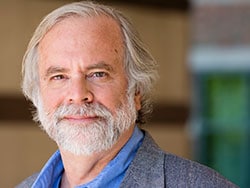I'm going to continue it anyway.
Does Exercise Really Boost Cognition?
Staying active is good for the brain as well as the body — it's a mantra we’ve heard for decades. Exercise can boost cognition, including executive function (EF), and help stave off dementia.
However, whether physical activity actually improves brain function is more complicated than much of the current literature suggests, say experts interviewed by Medscape.
Data 'Inconclusive'
Among the latest studies to suggest that exercise may have a "negligible" effect on cognition is an umbrella meta-analysis of 24 prior meta-analyses led by Luis Ciria, PhD, of the Mind, Brain and Behavior Research Center, University of Granada, Granada, Spain.
This analysis of the primary randomized controlled trials (RCTs) that made up the 24 meta-analyses found "evidence of low statistical power, … selective inclusion of studies, publication bias, and large variation in combinations of pre-processing and analytic decisions." The researchers also found that the small benefits became even smaller after accounting for moderators such as baseline differences and control type.
"We’re not saying exercise doesn’t help, only that the data are sh*t," Ciria told Medscape. "Many of the studies, of necessity, are observational. The RCTs are small, underpowered, with varying control groups, different types of exercise, varying intensities, and so forth."

Luis Ciria (left), with co-authors Daniel Sanabria and Rafael Román-Caballero.
Ciria said the team is calling on the World Health Organization to remove its recommendation that exercise is good for cognition in healthy people, which is causing a stir among proponents of a link between exercise and cognitive function.
In regard to publication bias, "After we published our paper," he said, "other investigators wrote to tell us they had come to similar conclusions, but could not get their studies published."
RCTs Too Restrictive
Exercise can make a difference in executive function, but the way many RCTs are done is "not allowing people to see the EF benefits that might actually be there," Adele Diamond, PhD, Canada research chair tier 1 professor of Developmental Cognitive Neuroscience at the University of British Columbia, Vancouver, British Columbia, Canada, told Medscape. "If you enjoy a particular activity, you care about it, you’re committed to it, you spend the time and effort necessary to get better at it — this is what’s needed to show EF benefits," she said. The results may be very different if you’re assigned to a group in a randomized trial.
Another problem, according to Diamond, is that researchers often too narrowly focus on the specifics of an intervention. "People are social, emotional, physical, and cognitive," she said. "If you target a little portion of a person with a specific sport or exercise intervention, it won’t have the same benefit as targeting the whole person. So again, having something meaningful to the study participants makes the most sense."
Even that may not be enough. "You might enjoy a particular sport, but if you go into a study where you have to do one of the skills of that sport repeatedly, like dribbling a basketball, but never getting to play in a game, it's less interesting. Maybe you're into it the first or second time, and after that, you’re done with it. Even if you continue, it probably won’t make a difference because EF needs to be continually challenged, not just used, to see improvements."
The intervention must make cognitive demands on the participants to show benefit, she emphasized. Differences between treatment and control groups may appear only when participants’ EF skills are sufficiently engaged. Diamond believes that aerobic exercise or resistance training that doesn’t include a cognitive component will produce little or no EF benefit.
Furthermore, if the intervention requires a specific type of training, she said, whether EF gains are seen will also depend on the instructor. That person needs to have rapport with the people s/he is working with and believe the intervention can help EF. "If the trainer isn’t committed, or antagonizes or belittles participants, then the intervention won’t help."
Too Much Heterogeneity
Eef Hogervorst, PhD, director of dementia research and professor of Psychology at Loughborough University, Loughborough, England, and her PhD student, Ahmet Begde, who studies exercise effects on brain function, reacted to the umbrella meta-analysis in a statement, and expanded on their perspectives in an interview with Medscape.

Eef Hogervorst
With regard to the umbrella meta-analysis, the two note that although a strong link between exercise and cognition is supported by 22 of the 24 included studies, "heterogeneity was moderate, suggesting that the meta-analyses were actually not very comparable and perhaps should not be analyzed together." Different exercise types, wide age ranges of the participants, and different outcome measures could be why the umbrella meta-analysis "did not show robustly that physical exercises do have a small, positive effect on cognition."
They also question whether the search strategy was comprehensive enough, noting that specific exercise types were not used as keywords, and that some large databases were not explored, and so all eligible meta-analyses in the literature may not have been included.
Furthermore, the methodological qualities of the meta-analyses and the primary RCTs were not reported in the paper.
"More clearly describing the intensity, type, and duration of the included workouts would have further clarified the reasons behind the umbrella meta-analysis’ unexpected results," they said.

Ahmet Begde
Whether exercise is shown to have cognitive benefits may be related not only to the type of exercise but also which cognitive function is tested with which tests and when — immediately after exercise, when people are activated, or after a longer time of exercising, when brain-derived nerve growth factor and better cardiovascular health can help support brain volume and function, they explained. The population assessed (elite athlete, sedentary, age, sex, +/- dementia) is also a factor.
In addition, they mentioned the "expectancy effect," first reported in the 1980s by Tomporowski et al, whereby anticipating a benefit from exercise may play a role in showing actual objective benefits on cognitive tests.
Even Small Effects Count
Despite the methodological problems inherent in studies of exercise and cognition, proponents are convinced that physical activity can improve EF and other aspects of brain health, even if the effects are small.
Art Kramer, PhD, professor of Psychology and director of the Center for Cognitive and Brain Health at Northeastern University, Boston, Massachusetts, has been investigating connections between exercise and cognition for decades. Ironically, his seminal meta-analysis of fitness effects on the cognitive function of older adults, which found "robust, but selective benefits for cognition," was included in the Ciria umbrella meta-analysis.
"It's not just EF; it's cognition writ large," Kramer told Medscape. We've published many studies since the early 1990s and we've always found benefits, both for aspects of cognition as well as brain structure and function."

Art Kramer
As early as 1999, Kramer’s group showed EF benefits of aerobic exercise on behaviors such as multitasking compared with stretching and toning in a study of 120 older adults. Kramer noted the importance of including an active control in all RCTs with exercise interventions. "Otherwise, you’re just saying that doing something is better than doing nothing."
In the early studies, Kramer’s group assessed EF effects using the Eriksen Flanker Task, which is similar to the commonly used Stroop Color and Word Test. Both evaluate an individual’s ability to focus their attention and ignore conflicting information, which is an aspect of EF. An example of the Stroop test would be to display the word "green" in red text and then ask the participant to state the color of the word aloud to see if they say the word (green) instead of the color (red).

Naming the displayed color of a printed word is an easier and quicker task if the word matches the color (top) than if it does not (bottom).
The group’s more recent studies assess not only cognition but brain structure and function using technologies such as functional magnetic imaging, electroencephalograms, and evoked potentials.
Kramer said that in all these studies, there's consistency for both small- and sometimes medium-sized effects of physical activity on cognition. "But even small effects are often clinically important," particularly among sedentary adults and children, he said.
Hogervorst and Begde noted that while some reviews suggest exercise does not work for older, sedentary people, they found that 6 weeks of doing resistance band exercises could improve EF, memory, and global cognitive function immediately after the exercise sessions, even in people with dementia.
Nevertheless, they acknowledge that as in many RCTs involving older adults, and particularly those with dementia, the sample size was small.
Like Kramer, they also found that effect sizes vary depending on the population, and often are affected by age, sex, and other factors. "Some studies suggest that the effects of exercise on EF aren't as large in people who are over age 75. And, some of the reviews we've done showed that the effects were largest in women, who were also at the biggest risk for dementia. More research is needed to understand these types of findings."
More recently, Hogervorst was involved in Super Movers, a study (unpublished) involving more than 1000 school children aged 10 and 11 in 17 schools across the UK.
Children were split into two groups — one did 50 minutes of circuit-style training and dance routines while the other group did math activities. Participants then performed a series of cognitive tasks. "Children who exercised had improved concentration and working memory speed compared to those who did math activities, and they also showed improved mood," Hogervorst said.
Looking Ahead
Regardless of where they stand on the potential benefits of exercise on EF and cognition overall, the experts interviewed for this article agreed that better research is needed.
Mechanistic studies, mainly in animals, will likely continue. "There are literally hundreds of studies on the mechanisms linking exercise and cognition," Kramer said. "They tend to be in animals because we can do so many things, like the histology, that we can’t do in humans. We can look at unbiased stereology if we're looking at neuron counts and synapses and neurotransmitters."
Going back 30 years or more in the animal literature, he said, "we see changes in neurogenesis — the birth of new neurons — in selective areas of the hippocampus. We see increased synaptogenesis, increased angiogenesis, and increases in telomere length, with exercise, as well as differences in mitochondria, in nerve growth factors such as BDNF, IGF-1, [and] VEGF."
A recent study even suggests that transfusing blood from active mice into older sedentary mice conferred brain benefits to the older mice.
In terms of methodology, "We should all start using the same cognitive tests, because we currently have a lot of people just using something they made up," Hogervorst said. "We need a gold standard battery of a certain number of tests, and if you want to add more tests to that, that’s fine, but at least we’re using a proper protocol."
Hogervorst also advocates for exercise protocols that are challenging but not so difficult that people drop out of the study, and that are run in collaboration with exercise psychologists and others using a multidisciplinary approach.
Studies also need to last much longer than 3 or 6 months, she said. Programs for young children, such as Montessori and El Sistema, have shown that it often takes 3 years or more to show benefits to academic performance with a given intervention, she said.
The EF measures used in exercise studies need to be improved, Diamond added. "Many of us are now working with more ecologically valid measures that relate more to the real world and may be more sensitive to EF changes."
More work needs to go into the potential benefits of mindfulness activities that involve movement, such as Tai Chi and Taekwondo (activities excluded from the Ciria umbrella meta-analysis), she said. "We didn’t expect this, but what popped up from our recent review is that those two types of exercise show the best evidence for improving EF — better than athletic activities, aerobics, or cognitive training. It may be because these activities reduce stress, and stress impairs EF. We need to look further into this."
For upcoming research in older adults, Kramer pointed to the IGNITE study of 648 cognitively normal adults aged 65 to 80 years. They will be randomized to one of three groups: aerobic exercise for 150 minutes per week for 12 months; aerobic exercise for 225 minutes per week for 12 months; and an active control of toning and stretching.
In addition to other assessments, Kramer said that they will use MRI, blood markers, and positron emission tomography to look at beta amyloid and some blood to look at tau -— precursors for the plaques and tangles for Alzheimer's disease.
Kramer noted that the umbrella meta-analysis excluded studies of clinical populations with health conditions such as obesity — something he doesn’t understand. "If you have older people in your study, how many of them don’t have any kind of health condition? As we get older, we have health conditions, but that doesn’t mean we can’t experience EF improvements. If you want to eliminate us, fine — but then your findings can only generalize to a much smaller percentage of the population."
He and a group of researchers are drafting a response to the umbrella meta-analysis that will likely be published in the next couple of months.
Even in light of small effects and conflicting findings for exercise and EF, Hogervorst said, "My message to everyone we engage with is that even a little bit of exercise is better than not exercising."
Begde, Ciria, Diamond, Hogervorst, and Kramer report no relevant financial relationships.
Marilynn Larkin is an award-winning science writer and editor. She is a frequent contributor to Medscape, was a contributing editor to The Lancet and its affiliated medical journals for more than 10 years, and a regular contributor to the Reuters Health professional newsfeed . Larkin is also a 20-year contributing editor to the Journal on Active Aging, and develops workshops on posture and movement for older adults. Follow her on Twitter: @MarilynnL.
No comments:
Post a Comment